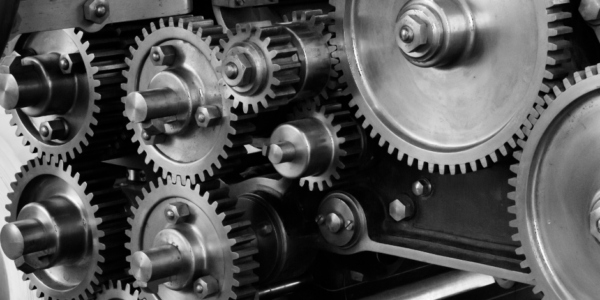Political intrigues aside, little changed for humankind for most of our existence as a species. For millennia, life expectancy at birth hovered around 25 years (mostly due to infant and childhood mortality) and virtually everyone faced a life of abject poverty. Civilizations were born and briefly flourished, only to be overwhelmed, torn asunder and replaced by other civilizations. Critical discoveries and singular events along the way resulted in a growing body of knowledge, but really, no significant improvement in standards of living for the common person.
For most of history, all human events—the rise and fall of empires, the plagues, religious spread and schisms, the invention of the wheel, aqueducts, the printing press—barely affected the typical person’s life span, political freedom, economic productivity or wealth. Then, with the Industrial Revolution, all those things changed at once.
Ushering in the servomotor
The development of improved farming practices in England created an agricultural revolution across Europe in the 18th Century which triggered the invention of farm tools, better crop and husbandry management, and drastically increased food supplies. Populations increased significantly even as the decline in the demand for agricultural workers fed the demand for an urban workforce on which industrialization depended. The discovery and exploitation of coal beds in England led to Watt’s improvement of the steam engine in 1778, which in turn opened the floodgates for industrialization of the then-modern world.
The history of the servomotor can be traced back to ancient times, as early as 200 B.C.E. However, the continuous history of modern servo control began in 1788 with James Watt’s invention of the fly-ball governor to regulate the speed of a steam engine. Subsequent developments, such as the invention of flow valves and pressure regulators, contributed to the emergence of the Industrial Revolution and the advancement of modern servo control technology. The field of servo control received a major boost during World War II, where it was used in various military applications, including missile guidance and control, target tracking, and navigational systems. In recent years, advances in technology have significantly improved servomotor torque performance, reduced their size and weight, and opened up new opportunities in machine design and applications. Servos now enable—and are essential to — the future of human endeavor. Hopefully, History will show that those endeavors were undertaken wisely for the good of mankind and the planet.
Then came Indramat
In 1958, Indramat was founded in Germany to create premier motion control solutions for industrial applications like printing presses, machine tools, packaging machines and other precision work. In 1965, we revolutionized the industry by developing the DC servo and brushless AC servo systems widely used in the automotive industry.
Since we were acquired by Bosch Rexroth in 2001, our products are marketed under the Intradrive, Indradyne, and IndraControl nameplates, but rest assured, like all of our products, they will work perfectly virtually forever.
Okay, we admit that forever comes to an abrupt end sometimes. If that happens CALL US IMMEDIATELY AT (479) 422-0390! We will help you analyze the situation (We can clear most error codes in one call.) We can also assist you in decision-making—whether to repair, upgrade or replace current devices. Factory remanufactures (reman) can provide you with like-new quality and many more years of service.
In any event, we can get you back up running fast to minimize lost production, idle workshifts, and accounting deficits.
